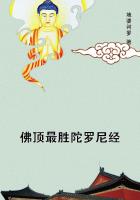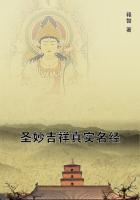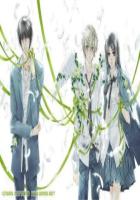The godson spent the night with them, and then went on. He walked all day and all night, and just before dawn he came upon some drovers encamped for the night, and lay down beside them. He saw that they had got all their cattle settled, and were trying to light a fire. They had taken dry twigs and lighted them, but before the twigs had time to burn up, they smothered them with damp brushwood. The brushwood hissed and the fire smouldered and went out. Then the drovers brought more dry wood, lit it, and again put on the brushwood -- and again the fire went out. They struggled with it for a long time, but could not get the fire to burn. Then the godson said:
'Do not be in such a hurry to put on the brushwood. Let the dry wood burn up properly before you put any on. When the fire is well alight you can put on as much as you please.'
The drovers followed his advice. They let the fire burn up fiercely before adding the brushwood, which then flared up so that they soon had a roaring fire.
The godson remained with them for a while, and then continued his way.
He went on, wondering what the three things he had seen might mean; but he could not fathom them.
IX
The godson walked the whole of that day, and in the evening came to another forest. There he found a hermit's cell, at which he knocked.
'Who is there?' asked a voice from within.
'A great sinner,' replied the godson. I must atone for another's sins as well as for my own.
The hermit hearing this came out.
'What sins are those that you have to bear for another?'
The godson told him everything: about his godfather; about the she-bear with the cubs; about the throne in the sealed room; about the commands his godfather had given him, as well as about the peasants he had seen trampling down the corn, and the calf that ran out when its mistress called it.
'I have seen that one cannot destroy evil by evil,' said he, 'but I cannot understand how it is to be destroyed. Teach me how it can be done.
'Tell me,' replied the hermit, 'what else you have seen on your way.'
The godson told him about the woman washing the table, and the men ****** cart-wheels, and the drovers fighting their fire.
The hermit listened to it all, and then went back to his cell and brought out an old jagged axe.
'Come with me,' said he.
When they had gone some way, the hermit pointed to a tree.
'Cut it down,' he said.
The godson felled the tree.
'Now chop it into three,' said the hermit.
The godson chopped the tree into three pieces. Then the hermit went back to his cell, and brought out some blazing sticks.
'Burn those three logs,' said he.
So the godson made a fire, and burnt the three logs till only three charred stumps remained.
'Now plant them half in the ground, like this.'
The godson did so.
'You see that river at the foot of the hill. Bring water from there in your mouth, and water these stumps. Water this stump, as you taught the woman: this one as you taught the wheel-wrights: and this one, as you taught the drovers. When all three have taken root and from these charred stumps apple-trees have sprung you will know how to destroy evil in men, and will have atoned for all your sins.'
Having said this, the hermit returned to his cell. The godson pondered for a long time, but could not understand what the hermit meant. Nevertheless he set to work to do as he had been told.
The godson went down to the river, filled his mouth with water, and returning, emptied it on to one of the charred stumps. This he did again and again, and watered all three-stumps. When he was hungry and quite tired out, he went to the cell to ask the old hermit for some food. He opened the door, and there upon a bench he saw the old man lying dead. The godson looked round for food, and he found some dried bread and ate a little of it. Then he took a spade and set to work to dig the hermit's grave. During the night he carried water and watered the stumps, and in the day he dug the grave. He had hardly finished the grave and was about to bury the corpse, when some people from the village came, bringing food for the old man.
The people heard that the old hermit was dead, and that he had given the godson his blessing, and left him in his place. So they buried the old man, gave the bread they had brought to the godson, and promising to bring him some more, they went away.
The godson remained in the old man's place. There he lived, eating the food people brought him, and doing as he had been told: carrying water from the river in his mouth and watering the charred stumps.
He lived thus for a year, and many people visited him. His fame spread abroad, as a holy man who lived in the forest and brought water from the bottom of a hill in his mouth to water charred stumps for the salvation of his soul. People flocked to see him. Rich merchants drove up bringing him presents, but he kept only the barest necessaries for himself, and gave the rest away to the poor.
And so the godson lived: carrying water in his mouth and watering the stumps half the day, and resting and receiving people the other half. And he began to think that this was the way he had been told to live, in order to destroy evil and atone for his sins.
He spent two years in this manner, not omitting for a single day to water the stumps. But still not one of them sprouted.
One day, as he sat in his cell, he heard a man ride past, singing as he went. The godson came out to see what sort of a man it was. He saw a strong young fellow, well dressed, and mounted on a handsome, well-saddled horse.
The godson stopped him, and asked him who he was, and where he was going.
'I am a robber,' the man answered, drawing rein. 'I ride about the highways killing people; and the more I kill, the merrier are the songs I sing.'
The godson was horror-struck, and thought:
'How can the evil be destroyed in such a man as this? It is easy to speak to those who come to me of their own accord and confess their sins. But this one boasts of the evil he does.'
So he said nothing, and turned away, thinking: 'What am I to do now?















